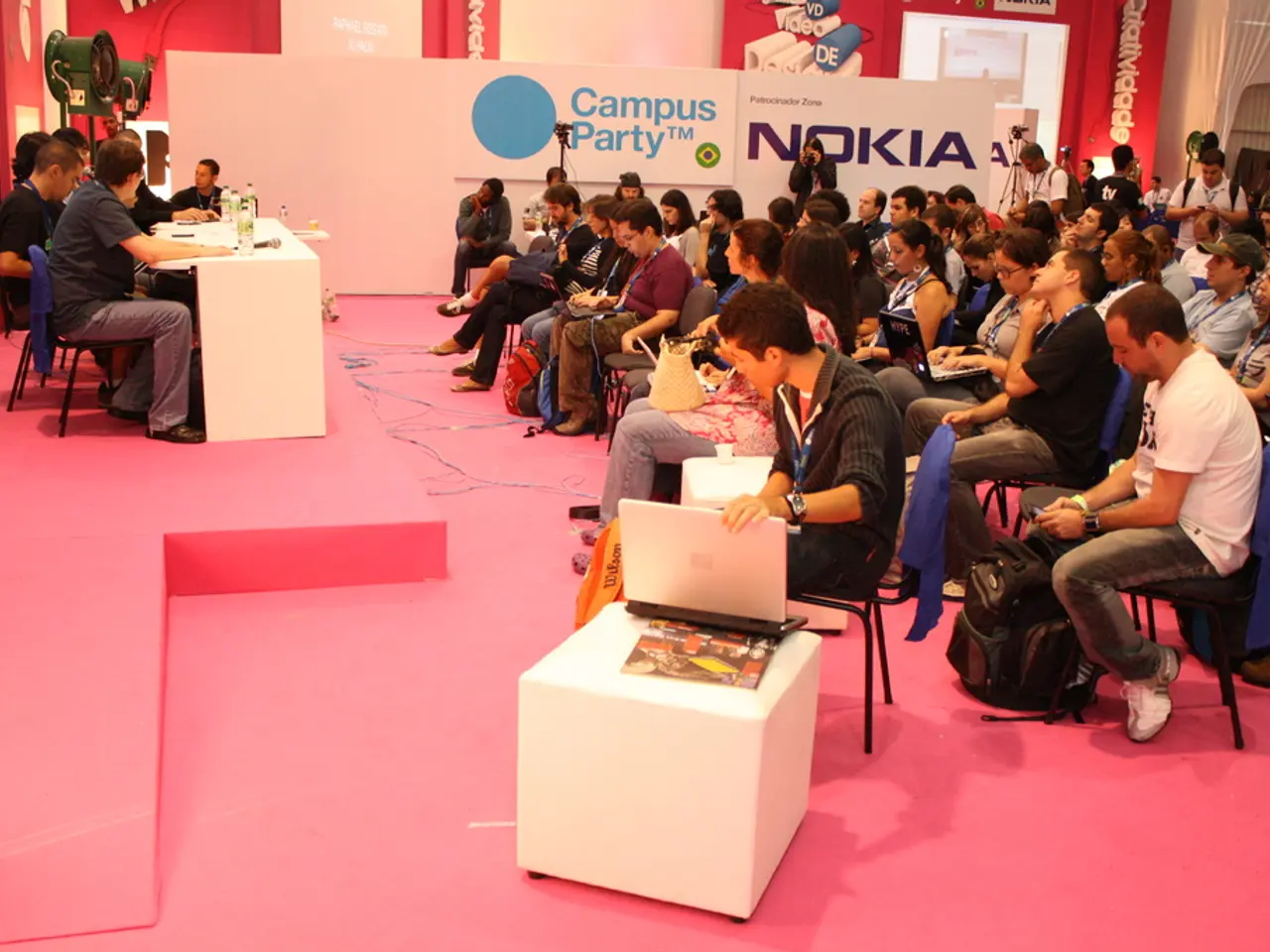U.S. President Trump raises doubts over broadcasting licenses
In a recent turn of events, US President Donald Trump has accused several media networks of bias and questioned their licenses following the temporary removal of Jimmy Kimmel's talk show.
Trump's criticism of the media is nothing new, with him regularly labeling established media as "enemies of the people" and threatening to revoke the licenses of unwanted networks. The President has suggested that the license of networks could be pulled due to their perceived bias.
The heated debate over media's response to government pressure has reached new heights following Trump's remarks. FCC Chief Brendan Carr, accused by critics of exerting pressure on companies, pressured the media company Disney, which owns the ABC network, to suspend Jimmy Kimmel's late-night show. Carr's remarks implied political and economic pressure despite lacking formal authority to enforce such actions.
The ABC network indefinitely pulled Kimmel's show due to his comments on the Charlie Kirk case, a decision that has further fueled the debate. Media company Nexstar, which broadcasts ABC content through dozens of local stations, also stated that it would no longer air Kimmel's show.
Former Vice President and Democratic presidential candidate Kamala Harris has criticized the media's capitulation to government pressure. Harris wrote on Twitter, "In the face of this frontal assault on free speech, we must not remain silent or self-censored."
Observers warn that this could lead to significant restrictions on press and freedom of speech. Sinclair, another operator of local stations, followed suit in not airing Kimmel's show.
Trump has expressed support for the removal of Kimmel's show and has called for the cancellation of other shows he dislikes. The President stated that he won the election despite receiving 97% negative publicity from networks.
Media companies are legally required to act in the public interest, according to the FCC. The decision regarding network licenses lies with the head of the media regulatory body, the Federal Communications Commission (FCC), Brendan Carr. Carr has stated that broadcast licenses are not "sacred cows."
This is not the first time Trump has questioned the media's role. In March, he described critical coverage of him by major American media as "illegal." The ongoing debate over media's response to government pressure continues to raise concerns about the future of press freedom in the United States.
Read also:
- United States tariffs pose a threat to India, necessitating the recruitment of adept negotiators or strategists, similar to those who had influenced Trump's decisions.
- Weekly happenings in the German Federal Parliament (Bundestag)
- Southwest region's most popular posts, accompanied by an inquiry:
- Discussion between Putin and Trump in Alaska could potentially overshadow Ukraine's concerns








